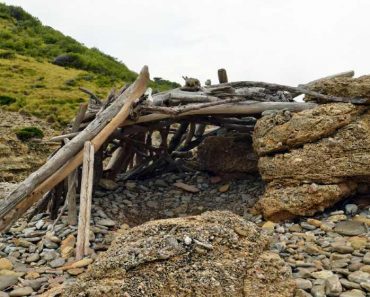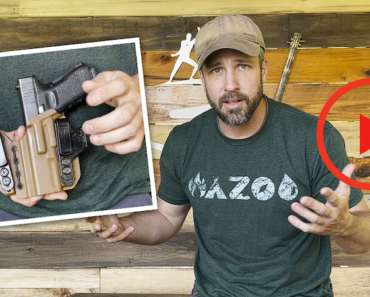The last few years have been interesting at best. Starting with the pandemic, we’ve seen disaster after disaster strike not only our country, but the world. We’ve also seen a constant string of shortages in everything from baby food to eggs. There have been enough of these shortages that some people are wondering whether there are nefarious forces working behind the scenes to bring them about. The large number of food processing plant fires in the last year has merely added to this speculation.
If there’s one thing for sure, it’s that we’ve had what was previously considered to be a high number of shortages hit us in this post-COVID world. I mean, who would have ever thought that getting something as basic as eggs would become such an issue? Yet it did. The fact that it did, along with a whole lot of other things, shows us that the world we live in today, is much different than the one we knew before.
As if to add to our misery, our far-left political overlords are working overtime in efforts that will surely add more shortages to our economy. Biden’s hard push for “going green” to the point of trying to get rid of all fossil fuels within the next decade, is going to create much more massive shortages than what we already know. So many industries depend on the petroleum industry for their very survival, including plastics, textiles, and pharmaceuticals. Should he succeed in destroying the use of fossil fuels, he will destroy those industries (and many more) as well.
Earn Your Food Independence NOW
But of course, our political leadership isn’t as concerned about what real impact their actions will have, as they are in virtue signaling. Looking good to those “progressive” elements on the extreme left has somehow become more important than meeting the needs of the American public. If the American people have to suffer to make that virtue signaling possible, they’ll be glad to point the finger at the other political party and blame them for it.
Let me say something here that I think is important, even though I don’t normally talk about politics. We have reached a point in our country’s politics where things are so divided, that nothing good can come out of Washington. People have complained about Congress being deadlocked; but I’m personally glad they are. With the types of legislation that have been being put forth the last few years, especially the “additional” provisions that are added into bills, I’d much rather see us in a situation where nobody is in total control of Congress. The Democrats were in control during the first two years of Obama’s presidency and that got us Obamacare. They were during the first two years of Biden’s presidency and that got us a trillion-dollar plus “infrastructure” bill that has little to do with infrastructure and a lot to do with pushing the left’s green agenda. We need a congress that can’t pass anything that leans too far one way or another, to protect We the People.
If our government is behind any of the shortages we’re experiencing or that are coming down the pike, I’d have to say that they are doing so unwittingly. There’s a thing called the “law of unintended consequences” where unexpected things happen because of government action. Congress passes laws all the time, expecting those laws to provide certain results; but in reality, the actual results are quite different.
As long as Congress tries to “fix things” they are going to continue to cause us problems. When those problems affect the products we use or the materials needed to make those products, it results in shortages. Their answer is usually to blame someone else, and if they try to do anything to fix the problem, it is more likely to cause shortages of something else, somewhere.
As I look at this problem, I can’t help but be reminded of the Soviet economic model, where the government tried to force their economy to operate by demanding it. Bureaucrats in some administrative office decided what was needed and then commanded industry to produce it. Whether or not they could didn’t really matter, just that they reported that they did. Those who needed the products didn’t have any recourse to complain when the products were unavailable.
Is that where we’re heading? When the president says that the solution to people not being able to afford high gas prices is for them to buy much more expensive electric cars and then turns around and hamstrings the energy industry, trying to force them to produce “green energy,” it sounds that way.
The governor of California just came out saying that they needed to buy more electricity from other states, assuming that those other states had the extra energy to sell. He has been another strong advocate of “green energy,” not caring about how much it is hurting the people of his state. Even Texas, which is by no means a left-wing bastion, is struggling with producing enough electricity, thanks to the push for green energy.
What this all boils down to is that widespread shortages are becoming a way of life, here in these United States, something that our parents and grandparents would have never thought possible. Unfortunately, it is unlikely to turn around anytime soon, leaving us to figure out how to deal with it.
So, Just How Can We Deal with It?
As preppers, we are in better shape to deal with these shortages than anyone else is. Most of us have extensive stockpiles, allowing us to work out of them, just as we did during the pandemic. But as many of us experienced during that time, it is possible for the shortages to outlast our stockpiles. The obvious answer to that is to expand our stockpiles, but that’s not always possible. As we all know, stockpiling is expensive.
Many preppers are moving more and more towards self-sufficiency, especially the more experienced ones. This is always beneficial and may be even more so during these times of shortages. I’m sure that anyone who had chickens was content during the recent egg shortage and hope that nobody lost any hens in the middle of the night.
This illustrates fairly well where we need to be as preppers. The less we need to depend on society around us, the better. While there are many conveniences that society at large can provide, they all come at a price. Part of that price is dependency. When we become accustomed to using all the conveniences that the world provides us with, we become dependent on those products and services.
One of the problems that we all face, in becoming self-sufficient, is that there are so many things that we need. Yet our ancestors got by without many of those things. Perhaps part of our problem as preppers who are trying to become self-sufficient, is that we are trying to maintain the commercialized American lifestyle we’ve all become accustomed to, rather than simplifying our lifestyle, so that we don’t need so many things. if we were able to simplify, then it would become easier to become self-sufficient.
That may sound easier than it actually is, as we’re accustomed to having all those conveniences. But when we look at those who have gone off grid or who are homesteading, we find that a large part of what they have done, in order to live the lifestyle they are living, is that they have simplified their lives. They are able to grow or make most of what they need, because they need less.
This is not to say that those people don’t buy anything or that they don’t need anything that comes out of a factory. But you can be pretty sure that they aren’t buying the latest iPhone as soon as it comes out. Some of those people might even still be using the indestructible Nokia 3310.
As preppers, one of our criteria for any purchase needs to be how long our purchases will last. If we assume that we’re going to face a TEOTWAWKI event sometime in our life, and most of us act as if that’s what we believe, then we should make all our purchases with that in mind. The clothes that we buy, our shoes, the cars that we drive and yes, even our cell phones, must be bought with the idea that we will use them for the next 20 or 30 years.
Taking that a step further, we shouldn’t throw away our old one, unless it is unusable. I still have an old tablet, which I used before getting an iPad back in 2012. I’m still using the same iPad, but that older tablet still works. Although I don’t use it, I keep it charged and available as my backup, should I ever need it.
We can do the same with many other things. Are you buying a new car? Then there’s nothing that says you need to get rid of the old one. If it’s paid off and it still runs, put it up on blocks in the backyard. It may not be an attractive addition to the landscaping, but it gives you a backup, should something happen to your new ride, any time that cars are scarce (new cars still are, the chip shortage isn’t over).



























